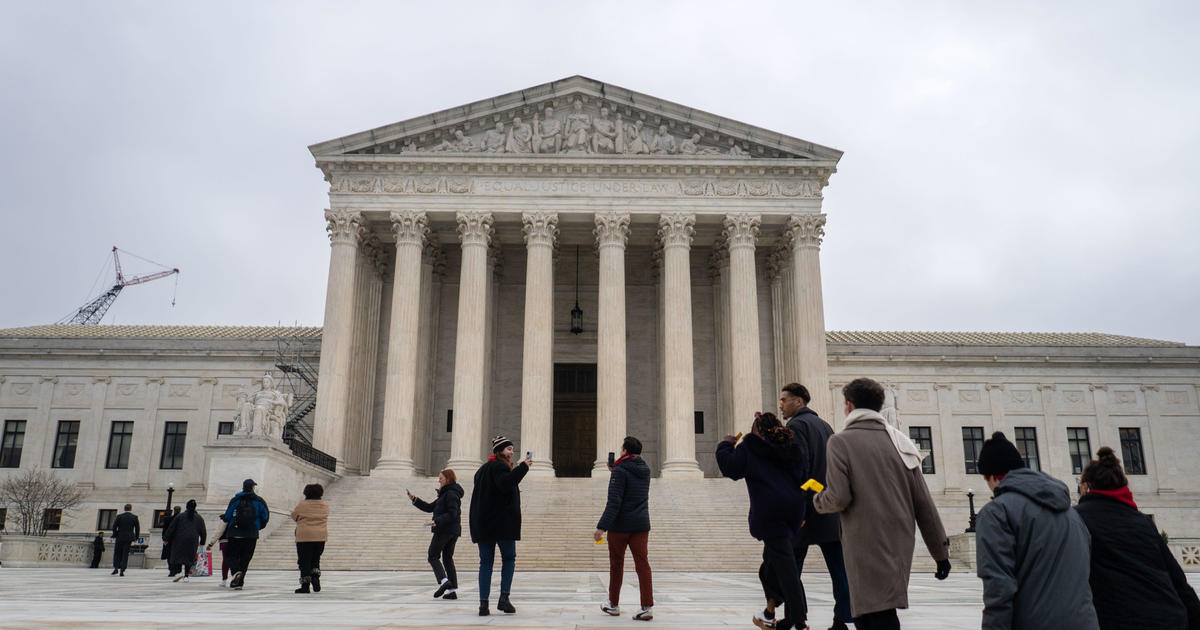Supreme Court requests more briefs in case over independent state legislature theory

Washington — The Supreme Court on Thursday ordered North Carolina Republican leaders, the Biden administration and voting rights groups to file additional briefs in a closely watched elections case it heard in December, at the center of which is a theory that would grant state legislatures near-exclusive power to set rules for federal elections.
In a brief order, the court called for the parties involved in the dispute and the Justice Department to file “supplemental letter briefs” addressing the Supreme Court’s jurisdiction over the case, given that the North Carolina Supreme Court has agreed to rehear the redistricting dispute at its center.
On the one side of the legal fight are North Carolina Republican legislative leaders, and on the other side are voting rights groups, North Carolina voters and state elections officials. The Justice Department backed voting rights groups in the case.
The court set a deadline of March 20 for the additional filings to be submitted.
The case before the Supreme Court, known as Moore v. Harper, stems from the redrawing of the congressional map by North Carolina’s Republican-led legislature after the 2020 Census. The state supreme court struck down the proposed voting boundaries as an unconstitutional partisan gerrymander that violated the North Carolina Constitution.
The General Assembly adopted new congressional voting lines, but that map was also rejected by a North Carolina trial court. Instead, it went on to approve a new map created by a group of special masters, which was to be used solely for the 2022 election cycle.
The North Carolina Republican leaders ultimately asked the Supreme Court in February 2022 to intervene and block use of the congressional map adopted by the state court, which it declined to do. They returned to the high court one month later, asking it to decide whether state courts have the authority to change rules governing the “times, place and manner” of federal elections, a power they argued is given only to each state’s legislature under the Constitution.
The Supreme Court in June said it would hear the case, and oral arguments were held Dec. 7.
The high court has not yet issued a decision in the dispute, which is expected by the end of June. In the meantime, party control of the North Carolina Supreme Court flipped after the November elections. The court then voted to reconsider its ruling tossing out the GOP-drawn congressional districts and a second court fight over a voter ID law. Republicans now hold an 5-2 majority on the state high court. Oral arguments in the redistricting case are set for March 14.
At the heart of the dispute lies a little-known doctrine called the “independent state legislature theory,” which largely lay dormant for more than 15 years but was thrust back into the spotlight when it was raised by former President Donald Trump and his allies as part of efforts to overturn the results of the 2020 presidential election.
Under the theory, pushed by North Carolina Republican leaders, the Constitution grants near-exclusive authority to state legislatures for setting federal elections rules, without oversight from state courts to ensure those laws comply with the constraints set by state constitutions.
During arguments in December, the Supreme Court appeared skeptical of fully endorsing the independent state legislature theory.
Share this news on your Fb,Twitter and Whatsapp
Times News Network:Latest News Headlines
Times News Network||Health||New York||USA News||Technology||World News